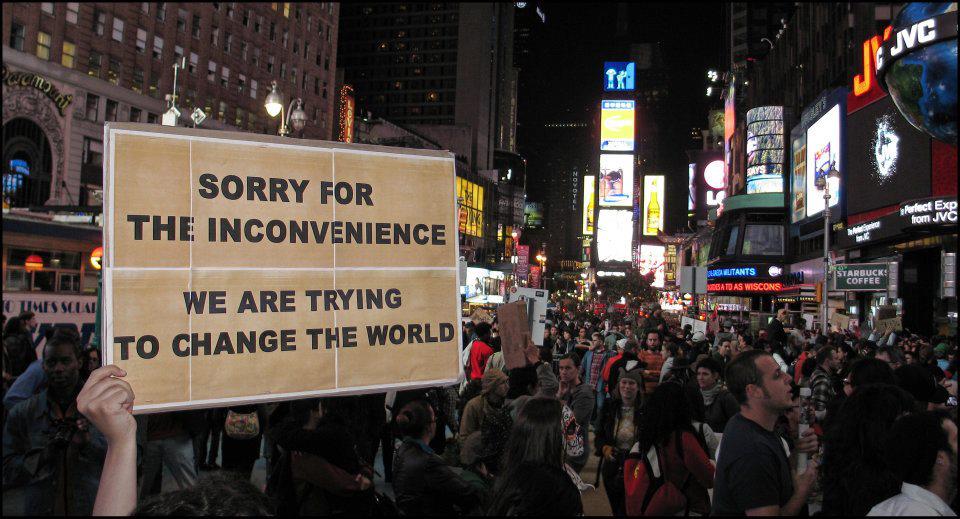IIn a recent editorial piece, Die Matie’s editor, Lian van Wyk, expressed some pointed criticisms of protests on campus, and used the LLL Village protest on the 21st of August as the primary example in his nit-picking. In the spirit of freedom of expression, open debate and academic critiques, I felt it was necessary to respond, as someone who took part in the protest itself, and in my capacity as an activist.
The first issue that we encounter with the piece is that the editor immediately pointed out that there is always “rhetoric” brought up at protests on campus. This would be a fair argument if an individual had not done the relevant research to determine the actual facts of a particular protest and the reasons for it.
As explained in the original article in Die Matie, Lucian van Wyk’s article on MatieMedia and Paul Joubert’s opinion piece, the reasons for LLLers disdain of the Centre for Student Communities are complex and comprehensive. The LLL programme is a crucial part of transformation, progressiveness and inclusivity on our campus and it has allowed the Village to become a safe space for predominantly people of colour to live and comfortably express themselves on a “white” campus. Separating the Village from LLL would give management a political upper-hand in influencing its demographics, which will ultimately hamper transformation in a living space that has been historically active on campus, from #FeesMustFall and #EndRapeCulture to this year’s shuttle fee protest.
The “right to housing” protest sign was singled out for criticism by Die Matie’s editor, and it was followed by him defending Pieter Kloppers with facts that make no logical sense. He claims that the protest placard was “ill considered” because the decision to convert the LLL Village to senior student accommodation would “add more spaces” instead of removing spaces.
Firstly, section 26 of the Constitution of the Republic of South Africa grants everyone the right to access to adequate housing, and requests the state to provide reasonable measures to ensure that this right can be upheld. Secondly, section 16 of the Constitution states that everyone has the right to freedom of expression. In this context, especially in South Africa, the student had every right to hold that placard.
When we look at the facts, we already have a large number of senior students living in the LLL programme, seeing as you have to be in your 2nd year or later to apply. The benefits for LLLers is that it provides a space of diversity where you can live more comfortably as a marginalized individual, compared to other living spaces on campus. Regarding the notion that more living spaces will be created, this makes no sense, because the difference will be applying senior residence-based criteria to the LLL Village, which will make it more exclusive and difficult for a student to apply to live there, thereby decreasing the chances of getting access to accommodation. In fact, Paul Joubert explains in his opinion piece how over a hundred students will actually be displaced, contrary to the University’s claims.
Mr Van Wyk also makes a concerning comparison between protesting students, who are simply protesting for fairer accommodation and the retention of LLL Village, to alleged corrupt officials mentioned in “Gangster State” by Pieter-Louis Myburgh. He implies the protesters are, as the politicians in Myburgh’s book, playing a “political game”, when the reality is simply that the university is constantly playing a political game in order to keep a positive image and use black students as pawns in a chess game.
In addition to this, Die Matie’s editor provides statistics on the chances of students making it to matric, then university, and graduating with their undergraduate degree. My immediate thought was that these statistics are being used to justify Mr Van Wyk’s view that the protesters are a “precious privileged”. However, I would not be surprised if the decision by management would play a role in worsening these statistics since many LLLers will have to worry about finding accommodation, removing focus from their academics.
The point Mr Van Wyk is making here is that it is wrong for protesters, who currently have housing, to protest about not having future housing while there are homeless people. This is very insensitive approach due to the fact that contextually, LLLers come from predominantly previously (or currently) disadvantaged and oppressed groups where access to housing has been a problem, and still is, in many areas. Beyond implying that their problems are not “real”, the fact of the matter is that many black students will be displaced in January 2020. It is for this, and many more reasons, why we had to protest the decision taken by management.
It is good to know that Die Matie’s editor recognizes protesting as one of our democratic rights. I would however like to encourage him and those in agreement with him to consider the notion of consultation. Consultation is a part of legislative and decision-making procedures whereby people whose rights will be affected by a decision should be consulted about it. Nowhere in his editorial does Mr Van Wyk allude to the fact that management failed on this ground.
It would be appreciated if writers do some research and understand the context of what they are writing about before publishing their views. It can become very dangerous to post uninformed or uncertain pieces, as you may potentially cast aspersions and mislead the public.
